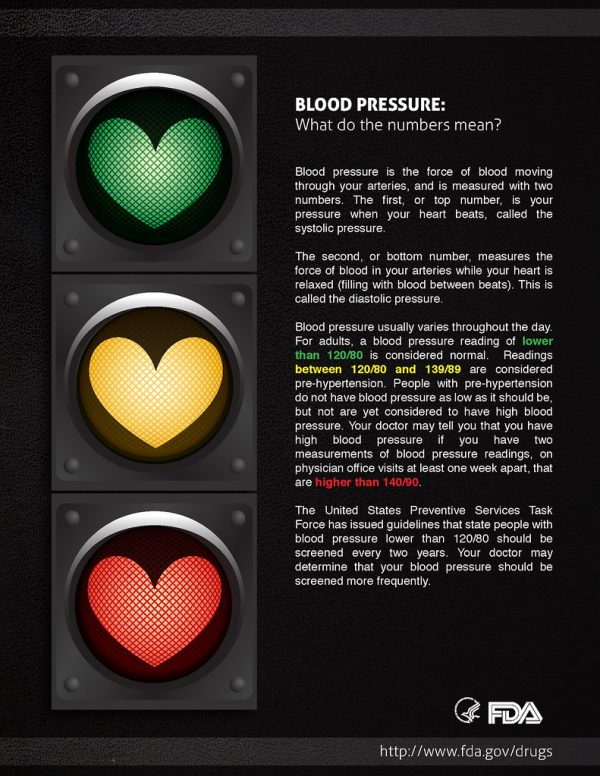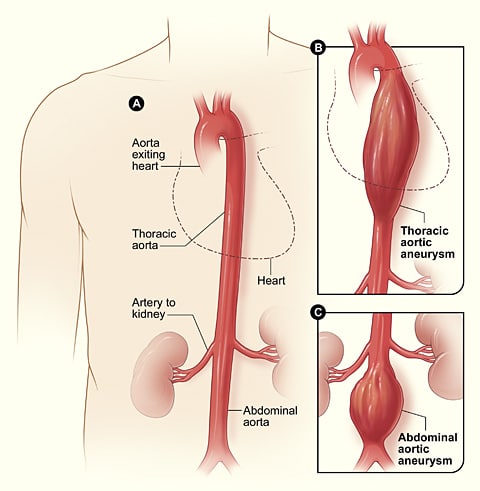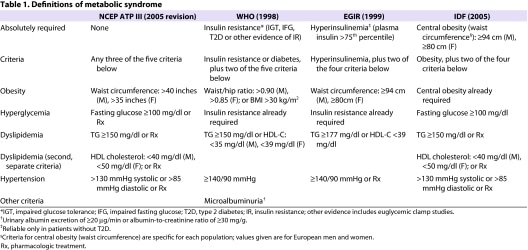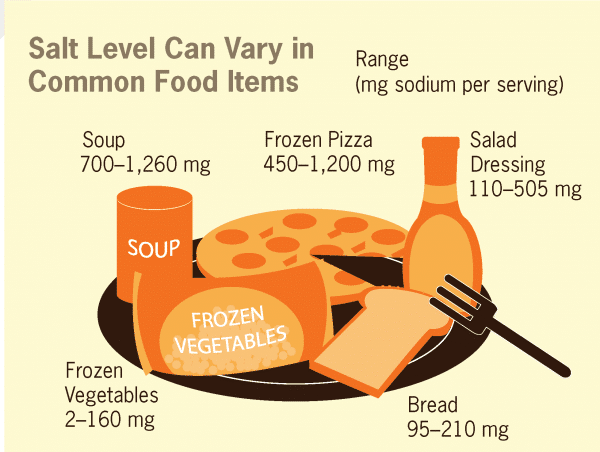Normal blood pressure is vital to your life. When it escalates, you need to lower blood pressure to avoid serious health complications like heart disease or stroke. Blood pressures refer to the force that causes the blood in your body to flow freely around the circulatory system. Without the normal blood pressure, the systems in your body cannot get oxygen or other nutrients. Your normal pressure range is 120/80mm Hg. It can increase when you have narrow arteries. The narrow arteries disrupt blood flow. So, your body increases the blood pressure to ensure adequate blood flow. Over a period, increased blood pressure or hypertension can cause fatal complications. Therefore, you need to take steps to manage the condition.
Signs Of High Blood Pressure

High blood pressure is a silent killer. Meaning, you may not know about the problem until you face some deadly complication. The majority of the people (one-third of the affected population) never know about high blood pressure. You discover it only during a routine checkup. But, certain symptoms can indicate the presence of the problem. So, look for the following symptoms:
- Vision problem
- Severe headache
- Chest pain
- Irregular heartbeat
- Fatigue
- Blood in urine
- Confusion
- Pounding sensation in ears, neck or chest
- Difficulty breathing
Why Should You Lower Blood Pressure?
Hypertension can put excess pressure on the artery walls. So, it damages your blood vessels. It also causes damage to your other organs. If you have uncontrolled high blood pressure for a long period, then it can cause greater damage to your body. Without proper medical intervention, you can suffer from the following complications:
Heart Attack/Stroke
With uncontrolled high blood pressure, your arteries tend to harden and thicken (atherosclerosis). It can result in heart attack, stroke, and other complications.
Aneurysm

Your blood vessels can weaken and bulge due to hypertension. It can lead to the formation of an aneurysm. The rupturing of the aneurysm can lead to life-threatening complications.
Heart Failure
When you experience higher pressure on your blood vessels, it causes your heart to work harder to pump blood. The condition can lead to the thickening of your heart’s wall. The condition is referred to as left ventricular hypertrophy. Ultimately, the thickened muscles can lead to having a hard time pumping the blood for your body’s need. The condition can result in heart failure. When you have weakened and narrow blood vessels in your kidneys, it leads to the organ from functioning normally. The torn, narrow or thick blood vessels in your eyes can result in vision loss.
Metabolic Syndrome

Metabolic syndrome refers to a cluster of problems in your body due to metabolism issues. The condition can lead to:
- High insulin levels
- Increased waist circumference
- High triglycerides levels
- Low HDL (high-density lipoprotein)
- Hypertension
So, the problem can result in developing diabetes, heart diseases, and stroke.
Issues With Understanding/Memory Problems
Uncontrolled hypertension can affect your mental abilities. So, you find it difficult to think, learn, and remember. You find it difficult to grasp or understand concepts. People with high blood pressure have issues with memory.
Dementia
When your arteries narrow or get blocked completely, it restricts the blood flow to the brain. So, people affected by the problem can suffer from vascular dementia (a certain type of dementia). A stroke can also cause vascular dementia as it interrupts the blood flow to the brain.
Steps To Lower Blood Pressure
When you suspect hypertension, see your doctor. The doctor can measure your blood pressure levels and check if it is high. You need to manage hypertension to prevent any complications. You have the following options to reduce high blood pressure.
Lifestyle Changes To Lower Blood Pressure
Your doctor suggests lifestyle changes as the first line of treatment for hypertension. The simple yet effective steps can lower blood pressure. People who successfully control their blood pressure with a healthy lifestyle can delay, reduce or avoid the need to take prescription medications. Here are some of the effective steps to manage hypertension:
Lose Weight
People with excess body weight need to watch what they eat to reduce the waistline. They need to lose the extra weight to lower blood pressure. As your weight increases, your blood pressure elevates. Obesity can also cause breathing disruption at night (Sleep Apnea). The condition can further increase your blood pressure. Weight loss is one of the most effective lifestyle changes to manage hypertension. Losing a small amount of weight can improve your blood pressure levels. For example, if you lose one kilogram (2.2 pounds) of your total weight, you can reduce 1mm Hg (millimeter of mercury) of blood pressure.
Thickening waistline indicates you are at risk of developing hypertension. Therefore, you need to keep an eye on your waistline. Excess fat around the waits can increase your risk of high blood pressure. So, you need to ensure the correct waist measurement:
- For men, the waist measurement must never go beyond 102 centimeters (40 inches)
- Women are at risk if the waist measures more than 89 centimeters (35 inches)
The numbers vary based on ethnicity. So, you need to consult your doctor to know about the healthy waist measurements for you.
Include Exercise In Your Routine
You have to exercise regularly. The regular physical activity can reduce the pressure levels by 5mm Hg to 8mm Hg. You have to include exercise for at least thirty minutes every day for five days a week. It is important to maintain consistency while exercising. When you stop exercising the blood pressure rises again. Hypertension is easy to avoid when you exercise regularly. If you are at a high risk of developing the problem, then a good workout routine can help you manage it. You can include the following exercises in your routine to manage the blood pressure levels:
- Aerobic Exercise like walking, cycling, jogging, dancing or swimming.
- HIIT (High-Intensity Interval Training) has intense activities for short bursts and subsequent recovery periods with lighter exercises.
- Strength training for at least two days of a week.
An effective workout program can offer you the benefits you desire. So, talk to your doctor about developing the right exercise program to suit your needs.
Eat A Healthy Diet
You need to include a healthy diet that contains all the necessary vitamins and minerals. So, a diet with the following can help you lower blood pressure by at least 11mm Hg:
- Vegetables
- Fruits
- Whole grains
- Low-fat dairy products
- Low-cholesterol and low-saturated fat products
The special diet known as DASH (Dietary Approaches to Stop Hypertension) can help you manage the condition. While it is difficult to completely transform your food habits overnight, you can adopt a healthy diet with the following steps:
Keep Track Of Your Food Habits
You need to keep a food diary with details of what you eat. Keeping it for at least a week will shed light on your actual eating habits. Based on the information, you can monitor what you choose to eat, the quantity, time, and the reason.
Boost Potassium

Potassium tends to lower the effects of sodium on your blood pressure. So, you can manage hypertension by boosting the intake of potassium. Instead of supplements, include foods containing potassium like banana to get benefits. Therefore, increase your intake of fruits and vegetables that contains potassium after consulting your doctor.
Smart Shopping
When you shop, look at the ingredients or food labels. It is helpful when you think about sticking to a healthy eating plan.
Reduce Sodium Intake
You need to reduce the sodium intake in your diet. Even a small reduction can improve your blood pressure levels. People suffering from hypertension can see the changes (5mm Hg to 6mm Hg) when they take less sodium. The effects of sodium intake vary with people. In normal cases, you need to limit the sodium intake to 2,300 milligrams or less. Taking 1,500 milligrams or less is also ideal for most people. If you struggle to reduce sodium, the follow the steps suggested below:
Check Food Labels

You need to understand what you eat. So, check the labels to see if the food item contains sodium. Choose a low-sodium alternative food and beverages.
Eat Less Processed Foods
Sodium occurs in small quantities in naturally occurring foods. In most cases, additional sodium is added during processing. Therefore, eat fewer processed food items.
Don’t Add Too Much Salt
Try to avoid too much salt. You can use herbs or spices in place of salt to add flavor to your food. It is because 1 teaspoon of salt has 2300 milligrams of sodium. So, excess salt is harmful when you have hypertension.
Ease Into It
You cannot reduce sodium altogether overnight. So, cut back the sodium amount gradually. It will give time for your palate to adjust to the new diet.
Limit Alcohol Consumption
Alcohol can offer benefits as well as put your health at risk. When you drink in moderation, it lowers blood pressure and cholesterol. But, when you consume it in excess, it can affect your health adversely. So, men need to stick to two drinks (hard liquor) and women must limit to one drink per day. Depending on the alcoholic beverage you consume, you need to limit the drinks. To gain the protective effect of alcohol, you need to stick to the suggested amounts. Drinking more than the suggested amounts can elevate your blood pressure and reduce the effectiveness of the medication you take to control the pressure levels.
Quit Smoking
Smoking can affect your blood pressure levels and cause irreversible damage to your health. Every cigarette you smoke can take you closer to death. It increases your blood pressure and puts a strain on your heart. So, if you wish to lower blood pressure levels, then quit smoking. It improves your overall health and aids in living longer.
Restrict Your Caffeine Intake
Caffeine can trigger a dramatic increase in blood pressure. The short-lived spike can affect people who do not suffer from hypertension. It remains unclear what causes the spike. Some researchers believe it occurs due to the caffeine blocking a hormone in the body that aids in keeping the arteries wide. People experiencing such spikes must refrain from consuming too much caffeine. If you wish to test the condition affects you, then you need to check your blood pressure before and after consuming a cup of coffee or other caffeinated beverages.
Check your blood pressure thirty minutes to two hours after consuming caffeine. If it increases by five to ten points, then you have a sensitivity to experience a spike in blood pressure. Try to cut back on caffeine gradually. It is because restricting it altogether suddenly can lead to withdrawal headaches. So, reduce caffeine intake over several days to a week.
Reduce Your Stress
Chronic stress can elevate your blood pressure. So, you need to take steps to reduce the complications associated with extreme stress. Chronic stress can put your health in jeopardy. It can also contribute to unhealthy eating habits. It is because some people tend to binge eat when they are stressed. Excessive pressure and anxiety can also lead to bad habits like drinking alcohol or smoking. To lower blood pressure, you need to find the root cause of the problem. Check if the family problem like illness, death or bad finances contribute to the problem. It is essential to recognize the stress factors before trying to eliminate them. You cannot eliminate all the stressors from your life. So, you can take effective steps to manage them more effectively. You can follow the steps suggested below:
Change Your Expectation
You need to change your perception of life. It is important to make a list of your priorities. You need to say no to things you cannot complete. You need to realize that you cannot change or control everything. So, you need to learn about how to react to situations better.
Focus On Issues That You Can Control
In a professional and personal front, you may face several problems. Don’t dwell upon things you cannot control. Shift your focus to issues that you can resolve with ease. You have to give priority to issues with solutions within your reach.
Avoid Stress Trigger
You need to understand what makes you stress. Make a list of things that can make you restless and anxious. Try to take measures to avoid stress triggers. In some cases, certain events or people can make you stress a lot. So, avoid such events or people.
Include Relaxation Techniques
You need to keep your mind off stressful things. So, divert your attention to things that will put your mind at ease. Sitting quietly, listening to music, breathing techniques, or taking a hobby will make you feel relaxed. Take time to enjoy the activities you like as it can reduce your stress levels.
Monitor Blood Pressure Constantly

You need to monitor your blood pressure levels regularly. So, take steps to check them at home. By keeping tabs on the blood pressure, you can detect any problems early. It also helps to see if the lifestyle changes show positive results or not. If you see an issue, then you can see the doctor immediately. Altering the doctor as early as possible can avoid any complications. You can get the blood pressure monitors widely in shops without a prescription. Get advice from your doctor about home monitoring before getting started.
Make Appointments With Doctor
You need to get a professional opinion on controlling your blood pressure. So, make appointments with your doctor. You can control your blood pressure levels with medical assistance. With well-managed blood pressure levels, your doctor can suggest checking it daily or less often. The doctor can also suggest changes in medications or other treatments. In most cases, the doctor suggests checking the blood pressure levels two weeks after the change in treatment as well as one week before you see the doctor.
Get Support
A good support circle with family and friends will help improve your health. Your loved ones encourage the steps to take care of yourself. They offer assistance like making doctor’s appointments or suggest an exercise regime to lower blood pressure. If you have no support system at home, then try to find support groups near your area or online. You can get in touch with people who offer an emotional boost. It offers you a chance to get valuable information and practical tips to cope with the condition.
Medications To Lower Blood Pressure
When lifestyle changes cause no changes in the blood pressure levels, your doctor suggests taking medications. Treating hypertension in its early stages is important to prevent complications and other issues. Several medications are available to treat the condition. Each medicine is divided into a different category and works differently. The medications also have different side effects. So, you need to talk to your doctor before taking the medicines.
Diuretics
It is the most common medication used to treat hypertension. The medication helps your kidneys to flush out excess water or salt (sodium). So, it reduces the volume of blood required to pass through the blood vessels. In turn, it lowers blood pressure.
Beta-Blockers
It works by blocking the action of chemicals stimulating your heart. So, it results in your heart beating with less force as well as speed. Due to the action of the medication, your heart pumps less blood through the blood vessels with each beat. Therefore, it helps lower blood pressure.
Angiotensin-Converting Enzyme (ACE) Inhibitors
The medication keeps your body from making angiotensin II. It is a hormone that causes your blood vessels to narrow. So, ACE inhibitors manage hypertension by expanding the constricted blood vessels and allow more blood to pass through it.
Angiotensin II Receptor Blockers (ARBs)
It is a class of drugs that protects your blood vessel from the angiotensin II hormone. When the hormones bind to a receptor site, it constricts the blood vessels. The medication prevents the binding from happening. So, it helps manage hypertension.
Calcium Channel Blockers
To move your muscles, calcium must flow in and out of the cells of the muscle. Calcium channel blockers block the calcium cells from entering your blood vessels and heart cells. So, it reduces the heartbeat and lowers its force. It results in the relaxation of the blood vessels. As a result, you can manage blood pressure.
Alpha-Blockers
In some situations, your body makes catecholamines hormones. The hormones tend to bind to certain parts of cells, known as alpha receptors. When it occurs, the blood vessels tend to narrow. So, it can lead to your heart beating faster with more force than necessary. Such actions can lead to an increase in blood pressure. Alpha-blockers are medications that block catecholamines hormones from binding to the alpha-receptors. So, it can aid in the blood to flow freely through the blood vessels. It can result in the heart beating normally. As a result, your blood pressure lowers.
Vasodilators
The medication can relax the muscles in the blood vessels wall. It is especially effective in relaxing arterioles (the smaller arteries). The medication widens the blood vessels. So, it allows the free flow of blood. The ease of blood flowing through the blood vessels can reduce blood pressure.
Aldosterone Receptor Antagonist
Aldosterone is a chemical in the body that causes fluid retention. The medication aids in blocking aldosterone. So, the action reduces the amount of fluid the body tends to retain. Therefore, it lowers hypertension.
Conclusion
Hypertension is a silent killer that destroys your life. So, you need to lower blood pressure levels to prevent irreversible damage to the body. With proper treatment at the right time, you can manage the problem and prevent fatal complications. Therefore, get regular checkups to monitor your blood pressure levels. It will help your doctor suggest proper treatment to avoid issues.
View Article Sources
